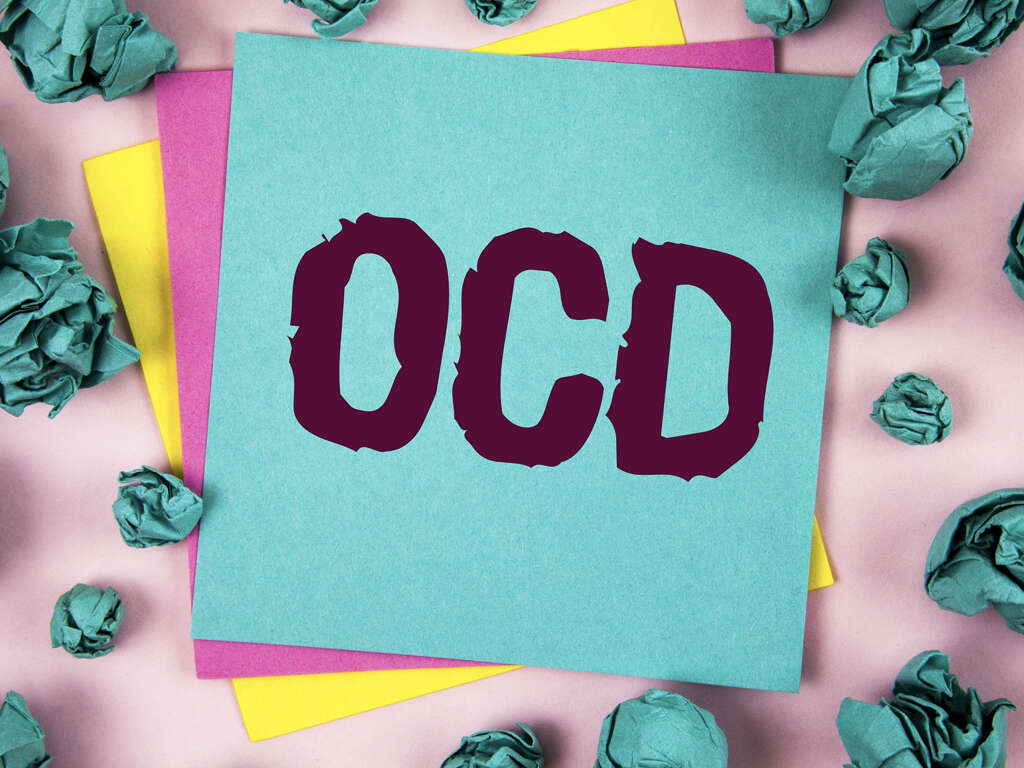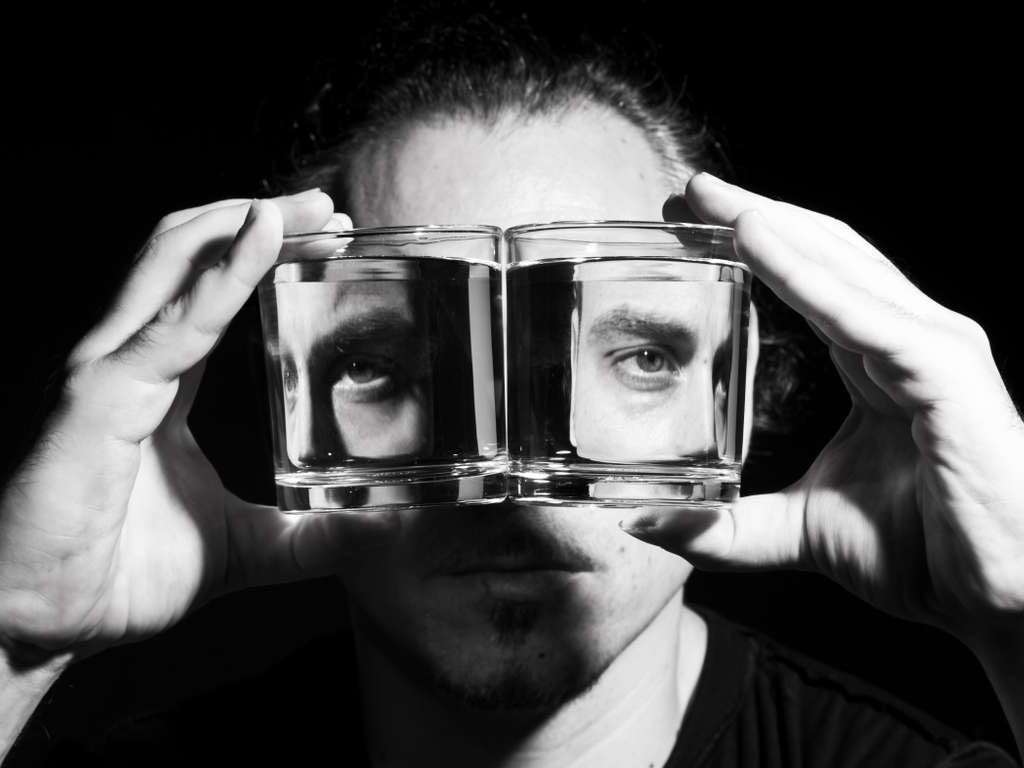Types of Personality Disorders
 Article Sources
Article Sources
- 1. 'What Are Personality Disorders?' What Are Personality Disorders?, www.psychiatry.org/patients-families/personality-disorders/what-are-personality-disorders
- 2. 'Personality Disorders.' Mayo Clinic, Mayo Foundation for Medical Education and Research, 23 Sept. 2016, www.mayoclinic.org/diseases-conditions/personality-disorders/symptoms-causes/syc-20354463
- 3. Schizoid Personality Disorder (ScPD) By Andrew Skodol, et al. 'Schizoid Personality Disorder (ScPD) - Psychiatric Disorders.' Merck Manuals Professional Edition, Merck Manuals, www.merckmanuals.com/professional/psychiatric-disorders/personality-disorders/schizoid-personality-disorder-scpd
- 4. Schizotypal Personality Disorder (STPD) By Andrew Skodol, et al. 'Schizotypal Personality Disorder (STPD) - Psychiatric Disorders.' Merck Manuals Professional Edition, Merck Manuals, www.merckmanuals.com/professional/psychiatric-disorders/personality-disorders/schizotypal-personality-disorder-stpd
- 5. Antisocial Personality Disorder (ASPD) By Andrew Skodol, et al. 'Antisocial Personality Disorder (ASPD) - Psychiatric Disorders.' Merck Manuals Professional Edition, Merck Manuals, www.merckmanuals.com/professional/psychiatric-disorders/personality-disorders/antisocial-personality-disorder-aspd
- 6. Borderline Personality Disorder (BPD) By Andrew Skodol, et al. 'Borderline Personality Disorder (BPD) - Psychiatric Disorders.' Merck Manuals Professional Edition, Merck Manuals, www.merckmanuals.com/professional/psychiatric-disorders/personality-disorders/borderline-personality-disorder-bpd
- 7. Histrionic Personality Disorder (HPD) By Andrew Skodol, et al. 'Histrionic Personality Disorder (HPD) - Psychiatric Disorders.' Merck Manuals Professional Edition, Merck Manuals, www.merckmanuals.com/professional/psychiatric-disorders/personality-disorders/histrionic-personality-disorder-hpd
- 8. Narcissistic Personality Disorder (NPD) By Andrew Skodol, et al. 'Narcissistic Personality Disorder (NPD) - Psychiatric Disorders.' Merck Manuals Professional Edition, Merck Manuals, www.merckmanuals.com/professional/psychiatric-disorders/personality-disorders/narcissistic-personality-disorder-npd
- 9. Avoidant Personality Disorder (AVPD) By Andrew Skodol, et al. 'Avoidant Personality Disorder (AVPD) - Psychiatric Disorders.' Merck Manuals Professional Edition, Merck Manuals, www.merckmanuals.com/professional/psychiatric-disorders/personality-disorders/avoidant-personality-disorder-avpd
- 10. 'Dependent Personality Disorder: Definition, Symptoms, Treatment.' Cleveland Clinic, my.clevelandclinic.org/health/diseases/9783-dependent-personality-disorder
- 11. Rowland, Tobias A, et al. 'Living with Obsessional Personality.' BJPsych Bulletin, Royal College of Psychiatrists, Dec. 2017, www.ncbi.nlm.nih.gov/pmc/articles/PMC5709690
Each person has a unique personality that develops based on heredity, environment and life experiences. Personality disorders are ways of thinking, feeling, behaving or relating to other people, causing potential difficulties with social, home and work relationships. These disorders usually begin in the late teens or early adulthood.
Personality disorders may impact the way a person perceives themselves and others, their emotional responses, the ways they relate to others and the ways they control their behavior. Ten personality disorders have been identified. Psychotherapy may help people recognize and alter behaviors affecting their relationships.1‘What Are Personality Disorders?’ What Are Personality Disorders?, www.psychiatry.org/patients-families/personality-disorders/what-are-personality-disorders

Paranoid Personality Disorder
A person with paranoid personality disorder may be suspicious of others, question the loyalty or motives of people, and think others are trying to hurt them, regardless of whether they know the people or not. They may misinterpret an innocent remark as an insult and react with anger or hostility, holding long-term grudges.
Because they fear other people may use information against them, a person with this personality disorder hesitates to confide in others or develop close relationships. If they're in a long-term romantic relationship, they may exhibit jealousy and continually question their partner's faithfulness.2‘Personality Disorders.’ Mayo Clinic, Mayo Foundation for Medical Education and Research, 23 Sept. 2016, www.mayoclinic.org/diseases-conditions/personality-disorders/symptoms-causes/syc-20354463

Schizoid Personality Disorder
Those with schizoid personality disorder may be uninterested in developing and maintaining personal relationships, preferring to spend time on their own. Having distant, cold or neglectful caregivers during childhood may contribute to the development of this disorder.
People with schizoid personality disorder commonly show little emotion, have difficulty expressing anger and appear aloof and passive. They may not seem to enjoy most activities, including dating. It's not unusual for these people to remain single, and they may show little interest in having sexual relations.3Schizoid Personality Disorder (ScPD) By Andrew Skodol, et al. ‘Schizoid Personality Disorder (ScPD) - Psychiatric Disorders.’ Merck Manuals Professional Edition, Merck Manuals, www.merckmanuals.com/professional/psychiatric-disorders/personality-disorders/schizoid-personality-disorder-scpd

Schizotypal Personality Disorder
Schizotypal personality disorder may have a genetic etiology, and those with this disorder may appear eccentric. Their clothing, speech, ideas and thought patterns may seem odd. Social situations may cause anxiety in these people, and they may have difficulty forming close relationships. Their emotional responses may be indifferent or inappropriate.
People with schizotypal personality disorder commonly perceive special or hidden meanings in mundane incidents. They may be superstitious and believe they have the power to control other people or events.2‘Personality Disorders.’ Mayo Clinic, Mayo Foundation for Medical Education and Research, 23 Sept. 2016, www.mayoclinic.org/diseases-conditions/personality-disorders/symptoms-causes/syc-20354463,4Schizotypal Personality Disorder (STPD) By Andrew Skodol, et al. ‘Schizotypal Personality Disorder (STPD) - Psychiatric Disorders.’ Merck Manuals Professional Edition, Merck Manuals, www.merckmanuals.com/professional/psychiatric-disorders/personality-disorders/schizotypal-personality-disorder-stpd

Antisocial Personality Disorder
While they may have a charming, self-assured facade, people with antisocial personality disorder commonly exhibit behavior that's irresponsible, aggressive and dishonest with little regard for the safety of themselves or others. Impulsive and easily provoked, these people may get into trouble with the law and abuse or exploit their romantic partners. They typically show little remorse.
Antisocial personality disorder has genetic and environmental causes. Children subject to abuse, neglect or inconsistent discipline are more likely to develop the disorder.2‘Personality Disorders.’ Mayo Clinic, Mayo Foundation for Medical Education and Research, 23 Sept. 2016, www.mayoclinic.org/diseases-conditions/personality-disorders/symptoms-causes/syc-20354463,5Antisocial Personality Disorder (ASPD) By Andrew Skodol, et al. ‘Antisocial Personality Disorder (ASPD) - Psychiatric Disorders.’ Merck Manuals Professional Edition, Merck Manuals, www.merckmanuals.com/professional/psychiatric-disorders/personality-disorders/antisocial-personality-disorder-aspd

Borderline Personality Disorder
A person with borderline personality disorder may display intensely variable moods and volatile anger, engage in impulsive, risky behavior and attempt suicide. Their relationships may change abruptly and dramatically. A friend or romantic partner the person initially likes and feels a connection with may say or do something to disappoint them, angering the person and prompting withdrawal from the relationship.
This personality disorder has a heritable component, but those with the disorder commonly experience childhood stress, neglect or physical or emotional abuse.2‘Personality Disorders.’ Mayo Clinic, Mayo Foundation for Medical Education and Research, 23 Sept. 2016, www.mayoclinic.org/diseases-conditions/personality-disorders/symptoms-causes/syc-20354463,6Borderline Personality Disorder (BPD) By Andrew Skodol, et al. ‘Borderline Personality Disorder (BPD) - Psychiatric Disorders.’ Merck Manuals Professional Edition, Merck Manuals, www.merckmanuals.com/professional/psychiatric-disorders/personality-disorders/borderline-personality-disorder-bpd

Histrionic Personality Disorder
If a person always seems to need to be the center of attention, dresses seductively and injects drama and enthusiasm into their communication style, they may have histrionic personality disorder. Easily bored, they may job hop and have short-lived friendships.
A person with histrionic personality disorder may have strong opinions without the facts to back them up, and they're easily influenced by others. They may be overly trusting of authority figures and perceive relationships as being closer than they are.2‘Personality Disorders.’ Mayo Clinic, Mayo Foundation for Medical Education and Research, 23 Sept. 2016, www.mayoclinic.org/diseases-conditions/personality-disorders/symptoms-causes/syc-20354463,7Histrionic Personality Disorder (HPD) By Andrew Skodol, et al. ‘Histrionic Personality Disorder (HPD) - Psychiatric Disorders.’ Merck Manuals Professional Edition, Merck Manuals, www.merckmanuals.com/professional/psychiatric-disorders/personality-disorders/histrionic-personality-disorder-hpd

Narcissistic Personality Disorder
Someone who has an exaggerated sense of self-importance and expects continual admiration, praise and favors may have narcissistic personality disorder. This personality disorder arises from self-esteem issues, and the person may seek to draw attention to their own achievements while failing to recognize or value the accomplishments of others. They may also take advantage of other people.
A person with narcissistic personality disorder may seem arrogant and have false perceptions of their success, looks and abilities. Sometimes they expect to receive special treatment.2‘Personality Disorders.’ Mayo Clinic, Mayo Foundation for Medical Education and Research, 23 Sept. 2016, www.mayoclinic.org/diseases-conditions/personality-disorders/symptoms-causes/syc-20354463,8Narcissistic Personality Disorder (NPD) By Andrew Skodol, et al. ‘Narcissistic Personality Disorder (NPD) - Psychiatric Disorders.’ Merck Manuals Professional Edition, Merck Manuals, www.merckmanuals.com/professional/psychiatric-disorders/personality-disorders/narcissistic-personality-disorder-npd

Avoidant Personality Disorder
A person who avoids social situations due to fear of rejection, embarrassment or ridicule may have avoidant personality disorder. The person may have difficulty handling social interactions and may avoid taking risks. Low self-esteem is at the root of this personality disorder. Extreme shyness, oversensitivity to criticism and rejection and feelings of inadequacy may make a person with avoidant personality disorder feel isolated.
Genetics plays a role in the development of this personality disorder. Studies indicate childhood rejection and marginalization are contributory factors.2‘Personality Disorders.’ Mayo Clinic, Mayo Foundation for Medical Education and Research, 23 Sept. 2016, www.mayoclinic.org/diseases-conditions/personality-disorders/symptoms-causes/syc-20354463,9Avoidant Personality Disorder (AVPD) By Andrew Skodol, et al. ‘Avoidant Personality Disorder (AVPD) - Psychiatric Disorders.’ Merck Manuals Professional Edition, Merck Manuals, www.merckmanuals.com/professional/psychiatric-disorders/personality-disorders/avoidant-personality-disorder-avpd

Dependent Personality Disorder
People with dependent personality disorder may feel unable to handle life without the help of others. They may have trouble making decisions, may not like being on their own and may not handle criticism well. They may seem clingy and fear being abandoned.
The tendency to develop dependent personality disorder may be inherited. It's more prevalent in those who've experienced abuse, neglect or life-threatening illness in childhood and in people raised in cultures or religions that hold authority in high esteem.10‘Dependent Personality Disorder: Definition, Symptoms, Treatment.’ Cleveland Clinic, my.clevelandclinic.org/health/diseases/9783-dependent-personality-disorder

Obsessive-Compulsive Personality Disorder
People who take perfection to an extreme and focus on rules, neatness and details may have obsessive-compulsive personality disorder. They're typically high achievers with a need to be in control at all times and may be unyielding when it comes to issues involving ethics, morals and values.
People with OCPD rarely handle criticism well. They may also become so involved in their work that they neglect friends and enjoyable activities. Obsessive-compulsive personality disorder is not the same as obsessive-compulsive disorder.2‘Personality Disorders.’ Mayo Clinic, Mayo Foundation for Medical Education and Research, 23 Sept. 2016, www.mayoclinic.org/diseases-conditions/personality-disorders/symptoms-causes/syc-20354463,11Rowland, Tobias A, et al. ‘Living with Obsessional Personality.’ BJPsych Bulletin, Royal College of Psychiatrists, Dec. 2017, www.ncbi.nlm.nih.gov/pmc/articles/PMC5709690











